For those unaware, Chicago's Sindrome released two of the finest and most legendary demos of the late-'80s/early-'90s thrash metal underground: 1987's Into the Halls of Extermination and 1991's Vault of Inner Conscience. Imagine, perhaps, a fusion of Morbid Angel's Altars of Madness and Forbidden's Twisted Into Form. That is to say: it's seriously great shit!
Unfortunately, the band suffered critical lineup changes that ultimately prevented them from securing a recording contract for a proper album. The demos remained so in-demand, however, that Sindrome became one of the most frequently bootlegged bands around; and labels large and small have been unsuccessfully hounding the group for decades for the opportunity to put together a legitimate Sindrome release.
So, when it was recently announced that Sindrome would finally be issuing an official double-CD (and vinyl) discography—Resurrection: The Complete Collection—through Century Media this month, I jumped at the chance to discuss the project with former Sindrome vocalist Troy Dixler... as soon as I scraped my jaw back up from the floor and regained my composure, that is!
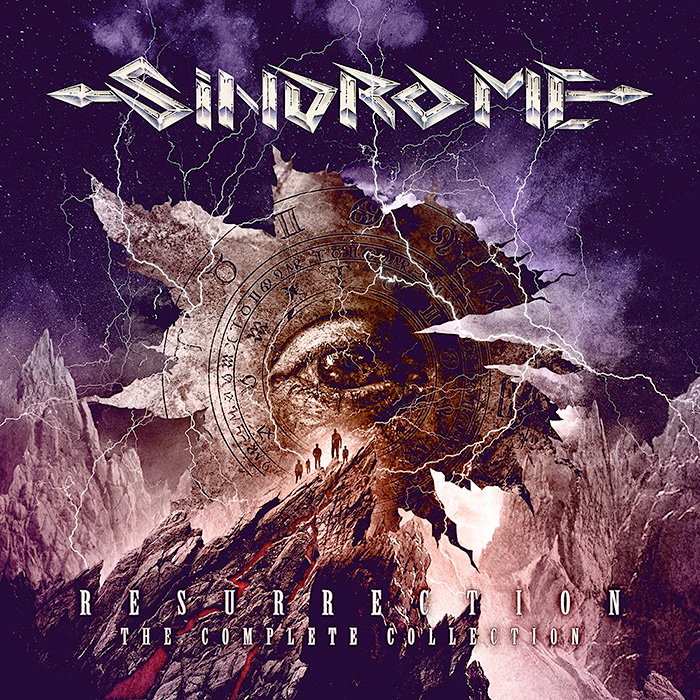
I have to begin with the most obvious question: how did this finally happen!? A number of record labels of varying sizes have practically begged for this opportunity for years and years. My jaw hit the floor and I was unbelievably psyched when I first heard the news!
It's true, over the years we've received many offers to re-release Sindrome. There were always a number of reasons why it never happened. First, I knew it would not be cheap to get all the recordings off the old analog tapes, get all the artwork scanned, etc. We also knew that the music would need to be remastered, as technology has come a long way from the '80s/'90s. Third, it was a tremendous amount of work to release it as a quality release. While a lot of the smaller labels had good intentions, I didn't believe they had the budget nor the marketing machine behind them to do a proper release. About a year ago, Century Media contacted us, and when it became obvious that they were serious, it was too good of an offer to walk away from. The team at the label were truly fans of the band, and I could tell they wanted to do this right.
I actually like the fact that everyone kept this completely under wraps until about a month before the discography will be in the fans' hands. Was that an intentional move? Was it hard to keep it a secret? You were probably still getting offers from other labels during this time!
We had an agreement amongst the members of the band that we would keep it private until it was ready to be released. A lot of that had to do with so many bands over-hyping themselves over extended periods of time, and many times things never materialize. Additionally, in today's world, everyone has Adult Onset Digital Attention Deficit Disorder (AODADD). That's a term I just made up. With smartphones combined with social media, the internet, email, text messaging, etc. we are all constantly paying attention to the next shiny object. It's hard enough to get people's attention right at the moment, let alone over some extended period. We figured we'd have it all done and ready to go, and then announce it a few weeks out from release so it made the most impact.
In fact, you are right, we were actively getting multiple offers throughout the time we were working on the release with Century Media, and I just played it off every time I was contacted.
Previously, you were simply giving away the demos as mp3s on your website, and you seemed indifferent to pursuing any form of official release for the material. What made you finally change your mind? (And thank you, by the way!)
As everyone knows with the internet, people trade music for free. Back when we released the cassette tapes, there were always diehard tape traders. But since the internet became commercial, everyone could trade the music in perfect digital form across the world in real-time. At the time, I thought, "Why not just put the music out on the web and hope everyone continues to listen to the music?" We wrote off the idea that we were going to make money on the releases years ago. The problem is that the mp3s—just like every Sindrome bootleg ever put out—were all ripped from the cassette tapes and the quality was terrible. Once the Century Media deal was put in place, the music was taken down from the website.
As I mentioned previously, all the labels that had contacted us were virtually unknown to me. It didn't mean that they weren't actually legitimate labels, but I knew that it would take considerable time, money, and energy to release Sindrome in a way that the fans would expect. What I mean by that is even when we put out our original releases in the '80s/'90s, there was always attention to the whole package—artwork, graphics, layout, etc. To do it right would require someone with a good graphics background, a great artist, and of course all the costs to get the material transferred from tape to disk. When Century Media approached us, I knew they were a label that had the right resources to put out a quality release, so at that point, I thought this was the right offer to release the material in the way it should be done.
Sindrome has been one of the most heavily bootlegged bands out there in the decades since its demise—CDs, 12" vinyl picture discs, t-shirts... you name it. You seem flattered by the underground's dedication now, but did the bootlegging piss you off prior to agreeing to an official discography release?
It's funny, none of us realized just how bootlegged we were until we did this release. Now that we are reconnecting with our old friends and fans on Facebook, people continue to upload an insane number of bootlegs. The truth is, a lot of them are amazing—from the layouts to the picture discs. Even with the few bootlegs that I knew about over the years, I was never pissed off, because I knew that it was done by fans who just wanted the music on vinyl or CD. I can't say I like the idea of someone making money off of our music when we were opting to give it away for free, but any attempt to try and find the people doing it would have been impossible.
While putting together this collection, you unearthed an unreleased track from the Into the Halls of Extermination sessions. What can you share about that discovery, and why "Brought to the End" was not included on the original demo?
I took the master tapes and a portable hard drive into Steve Albini's Electrical Audio recording studio in Chicago. Steve is one of the last major studios left that can still read and transfer from analog tape around here. After they transferred the tracks over, I was reviewing the song titles they listed and there was a sixth track from our 1987 session when we recorded Into the Halls of Extermination. I seriously thought something was wrong, but remembered the song title. I asked them to queue it up and sure enough, there it was: a lost track. After leaving the studio, I asked [our bassist] Shaun [Glass] if he remembered recording the song, and of course he didn't. When I told him we had it, he had the same reaction as I did. This lost song will be yet another way to make the Resurrection... release stand out from all the previous bootlegs. It's the type of thing you always hope you will find when doing a reissue. Looking back on why it wasn't on the original demo, we had just written the song right before we went into the studio and we felt it wasn't as polished as the rest of the tracks, so we left it off.
There are a couple of previously unreleased live tracks included, too. The live set was recorded in 1988, the year following Into the Halls of Extermination, but neither "Surround the Prisoner" nor "Psychic Warfare" landed on 1991's Vault of Inner Conscience. What do you recall about those tunes?
We wrote both of those songs after we recorded Into the Halls of Extermination, and before we went out with Death for the Scream Bloody Gore tour in 1988. Chris Mittelbrun was still our guitar player, and both songs fit well with the era of songs we wrote on Into the Halls...
How many other songs did the band have that never had the opportunity to be documented—live or otherwise?
The three songs being released with Resurrection: The Complete Collection are the only three. We never had a chance to record ["Surround the Prisoner" and "Psychic Warfare"] because Chris left Sindrome in late-1988. By the time we replaced him as the songwriter with [new guitarists] Rob Welsh and Mick Vega, our songwriting style had changed considerably, so it didn't make any sense for us to go back and record those tracks.
I'm not one to dig into the minutiae of each and every track, but "Descending Into Madness" is hands down one of the greatest thrash songs ever written: unstoppably meaty early-'90s thrash rhythms, flurries of obscene technicality and borderline chaotic leads, and one of the most insanely catchy choruses of any thrash track ever. Did the band ever have a "Holy shit!" moment with that particular song where you could just feel that everything had come together so perfectly?
That has to be the best compliment ever put into the form of a question I've answered in an interview. I sincerely appreciate the compliment. If you remember, Sindrome was virtually stopped in its tracks once Chris left the band, and it was not easy to replace him. We worked really hard trying to find his replacement—let alone writing Vault of Inner Conscience—which is why it took so long between releases. We had become quite popular with Into the Halls..., and wanted to try our best to return with everything better than we did the first time around. It took quite some time for Rob Welsh and I to work together on our writing style. I think with any good songwriting duo, you both know what works well, but it's finding that right intersection with riffs and vocal hooks that really makes the difference. Nothing is more satisfying than hearing people tell us they still love the songs we wrote.
Was the catchiness factor something that you were intentionally striving for with the band's songwriting, or was it just a happy accident? It was even there from the beginning in earlier cuts like "Cathedral of Ice, " etc.
It's always been a personal focus to make sure there's always some type of hook in the songs we wrote. As a singer, there's nothing better than when the audience sings every word of a song back to you. Even today, people will post memories to our Facebook page and quote lyrics word-for-word. That's when you know your music has made an impact on people.
There's a great quote from Znöwhite/Cyclone Temple main man Greg Fulton circulating in some of the press materials for Resurrection: The Complete Collection about how he always wondered how everyone seemed to know who Sindrome was back in the day. How did you do such a great job of getting the band's name out there in front of people?
It was a lot of hard work. Back in the '80s/'90s there was no internet. I jokingly tell people that I was a virtual postmaster with the amount of mail I was doing in those days—whether it was interviews, sending out tapes for reviews, sending t-shirts, etc. It also helped that we were getting a lot of support from other bands that went on to sign big recording contracts. When bands would come into town, we felt like we already knew each other from all the letters we wrote back and forth. Compared to the internet, the underground—with its black and white fanzines and tape trading—was a really tight-knit group, so if you gained popularity in that scene, it really transferred over once thrash and death metal started to sell on a large scale with the labels' marketing and the sheer number of fans buying vinyl, CDs, and cassettes.
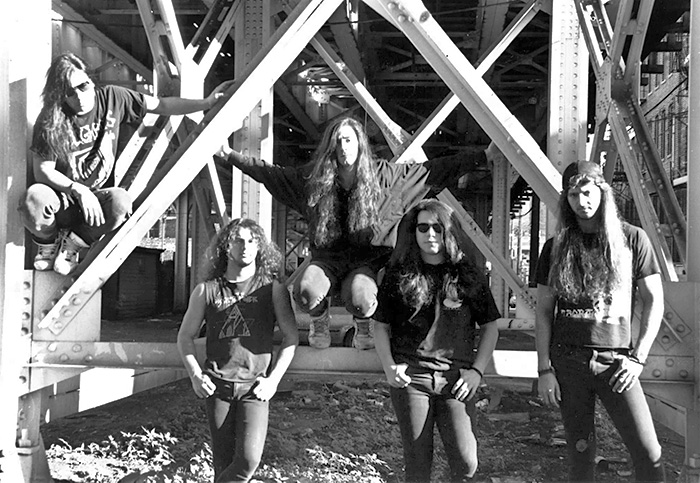
Sindrome stuck around until 1993. I know the breakup primarily stemmed from frustrations regarding lineup changes, but were you also feeling the effects of the sea change towards grunge at that time?
After Chris Mittlebrun left us in 1988, that left us in a bad spot. He was my other half in terms of the songwriting duo that wrote Into the Halls of Extermination. He would take input from Shaun Glass, and we worked really closely together to write those songs. It was hard enough trying to find his replacement, but clearly whoever joined was going to bring a new style to the band. Rob Welsh stepped up into Chris' position with Vault of Inner Conscience, and it took us a while to work on the songs that we released. During that time, we had both Rob and Mick on guitar, and you can hear the result in the songs as musically they're very different. Once we recorded Vault..., history repeated itself with Sindrome. We had a falling out with Rob and tried to replace him with [former Lääz Rockit guitarist] Ken Savich. One of the untold stories is that while Ken's picture appears on Vault..., he never wrote or recorded any of the songs on that release. Rob Welsh was credited on the release, but he deserves a lot of credit for his work on those songs. While Ken relocated to Chicago to join us, we never wrote or recorded any new songs with him—which ultimately led to the end of Sindrome.
At the time, we tried to publicly hold it together with a good face by continuing to promote the band through all the lineup changes, but in reality they were almost impossible to work through. A lot of bands replace members, but when it's either the singer or the main songwriter, it's far more difficult. It's difficult enough to replace your main songwriter once, but twice just proved too difficult for us.
The grunge takeover really had no impact on us, because our problem was completely related to the constant lineup changes. We didn't even have a chance to get out there to release a full-length album, let alone tour and feel the effects of metal losing popularity to grunge. If we did, I'm sure that would have affected us—as it did every metal band during that transition.
A number of Sindrome's former members stayed at least somewhat musically active for a period of time after you called it quits, but you pretty much moved on from music, right? How would you describe your headspace at the time? Did you consider continuing with music, or were you just over it at that point?
It's a great question. At the time, I had tried everything to find Rob Welsh's replacement—from getting Ken to move out to Chicago, to trying to work with the remaining members. Once it became clear that the songwriting was not coming along, everyone went in different directions. Personally, I had a decision to make: do I try and rebuild Sindrome (which I had essentially tried and failed to do), do something else in the music industry (open a studio, etc.), or go back to college? It's one of those moments in my life that I'll never forget. I was in my mid-20s and thought I really needed to go back to school, but was torn about sitting behind a desk and trying to get back into studying and test-taking after so many years away from school. That turned out to be the best decision of my life, and I graduated with a bachelor's degree a few years later. It wasn't easy going from band life to back behind a desk, but it allowed me to build a career outside of music, and I'm really happy I made that choice.
Hindsight being 20/20, if you could take the DeLorean back a few decades, would you have done anything differently?
There are so many things you can try and look back on to do differently, but in reality we tried our best to make things work with Chris and he decided to quit the band. His decision was out of our control and made us start over a second time. With Rob Welsh, it was a different story, he had other priorities in his life than focusing on Sindrome. You can't force someone to have the motivation necessary to really want something. No matter what other decisions we second guess, losing the two key songwriters that I worked with was the unfortunate untold story of why Sindrome never signed a deal and took it to the next level.
I've already gushed aplenty, but I know I'm not alone in my overzealous fanboy enthusiasm for seeing this release finally take shape. What has been the most rewarding part of the process in putting this whole thing together and finally seeing this music be given the treatment that it has always so desperately deserved?
The most rewarding part is reconnecting with old friends and fans and seeing all the comments about Sindrome. This is the first time we've had direct interaction in the way that social media provides. Hearing that the music is still considered fresh after all this time is the best gift any artist can ask for. We're hoping that by putting this release out, we can reach a whole generation of new fans that never heard of Sindrome back in the '80s/'90s.
Thanks so much for your time, Troy.
Thanks to Aversionline for giving us the opportunity to help spread the news. Please visit the Sindrome Facebook page and invite your friends; and share our announcement about the Century Media release of Resurrection: The Complete Collection on your walls, groups, web forums, or with your friends... because that is the only way we are going to get it known.
***
Resurrection: The Complete Collection is now available on both CD and vinyl through Century Media (and numerous other retailers) in Europe and the US. Enthusiastic collectors can also find an additional limited edition clear vinyl variation exclusively through High Roller Records. Keep up with Sindrome on Facebook.

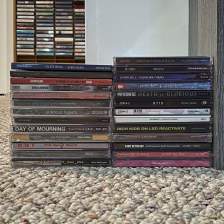
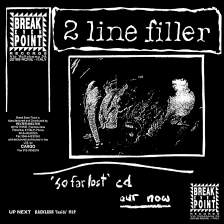

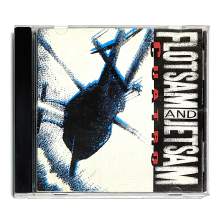

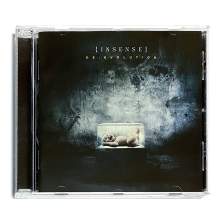

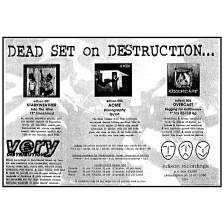



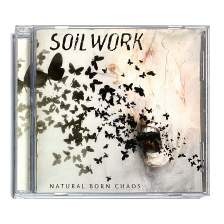
Comments
One of the most professional “demo” bands I ever had the opportunity to cover back in the old cut and paste days. Their packaging rivaled releases on Combat, Metal Blade, New Renaissance, etc. Great to see the demos repackaged, remastered and given legit re-release. Far too long of a wait, but one well worth it. Andrew, have you heard Chicago’s Nucleus? It will probably remind you of Sindrome forging a death metal path: compact songs, mix of tech and catchy riffs, vocals not as clear as Troy - more like Seance.
3.7.2016 | By kidlazarus
Never heard Nucleus. Looking them up right now. Thanks for the tip, as always!
3.7.2016 | By Andrew Aversionline
https://
https://nucleus.bandcamp.com/
3.7.2016 | By kidlazarus
Yeah! Not sure if I heard about this band when you posted demos in your previous blog.
I totally agree! I’m more addicted to this band with every new listen!:)
4.24.2016 | By CarlosFromAversionline
Nice article..We all thought they were next to blow up
5.19.2016 | By danny spitz